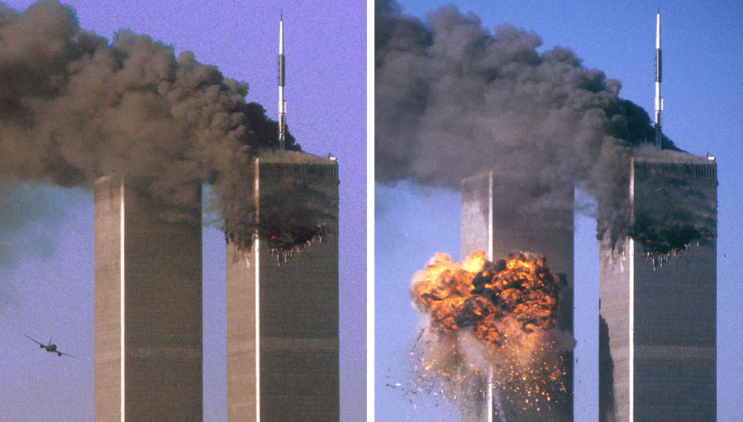Best Free Resources for Traders in 2025: From Charts to AI Alerts
December 01 , 2025

Explore the events of September 11, 2001, the attacks on the World Trade Center and Pentagon, and their lasting impact on the U.S. and the world.
September 11, 2001, also known as 9/11, is etched into global history as one of the most tragic and defining days of the 21st century. Coordinated terrorist attacks on the United States resulted in the loss of nearly 3,000 lives and reshaped global politics, security measures, and international relations. The events of that day continue to influence public consciousness, policy decisions, and cultural memory worldwide.
On the morning of September 11, 2001, 19 terrorists associated with the extremist group Al-Qaeda hijacked four commercial airplanes. Two of these planes, American Airlines Flight 11 and United Airlines Flight 175, were flown into the North and South Towers of the World Trade Center in New York City. The impacts caused massive explosions, fires, and ultimately, the collapse of both towers within hours. Thousands of people inside the buildings, first responders, and civilians in the surrounding area lost their lives.
The destruction of the Twin Towers was not only a humanitarian tragedy but also a symbolic attack on American economic power and global influence. Images of the towers collapsing were broadcast worldwide, leaving an indelible mark on the collective consciousness of millions.
The third plane, American Airlines Flight 77, was crashed into the Pentagon in Arlington, Virginia. The impact killed 125 military and civilian personnel, in addition to the passengers on board. The attack struck at the heart of the U.S. Department of Defense, highlighting vulnerabilities in national security and military infrastructure.
The fourth plane, United Airlines Flight 93, was headed for Washington, D.C., but passengers heroically attempted to regain control from the hijackers. The plane ultimately crashed into a field in Shanksville, Pennsylvania, preventing further devastation at its intended target, which was believed to be either the White House or the Capitol. The bravery of Flight 93’s passengers remains a powerful testament to courage and self-sacrifice.
Emergency services, including firefighters, police officers, and paramedics, rushed to the sites of the attacks. First responders faced unimaginable conditions, risking their lives to save others. The rescue operations at Ground Zero in New York continued for weeks, with recovery crews tirelessly searching for survivors amidst debris. Many first responders later faced long-term health issues due to exposure to toxic dust and materials at the site.
Nationwide, air travel was grounded, and security protocols were heightened as Americans struggled to comprehend the scale of the attacks. The government implemented emergency measures to protect citizens and critical infrastructure, and communities came together in support of the victims and their families.
The 9/11 attacks had immediate and far-reaching geopolitical consequences. The United States, under President George W. Bush, launched the "War on Terror," leading to military interventions in Afghanistan and later Iraq. These actions aimed to dismantle terrorist networks and prevent further attacks. NATO invoked Article 5 for the first time in history, declaring that an attack on one member is an attack on all, solidifying international support for counterterrorism efforts.
In addition to military responses, governments around the world strengthened intelligence sharing, airport security, and anti-terrorism legislation. Policies like the USA PATRIOT Act were enacted to improve surveillance capabilities and protect against potential threats, sparking debates about civil liberties and privacy rights.
The attacks of September 11, 2001, deeply affected American society. Millions of families mourned lost loved ones, while first responders and volunteers faced emotional and physical tolls. The events fostered a renewed sense of patriotism, unity, and resilience, as citizens rallied to support victims and rebuild communities.
However, the aftermath also led to increased scrutiny and profiling of Muslim communities, sparking discussions on discrimination, civil rights, and social cohesion. The attacks fundamentally altered public perceptions of security, travel, and the global threat landscape.
Each year, Americans observe September 11 with memorial ceremonies, moments of silence, and educational programs. The 9/11 Memorial and Museum in New York City stands as a tribute to those who lost their lives, honoring their memory while educating the public about the events and their historical significance.
Memorials also exist at the Pentagon and in Shanksville, Pennsylvania, commemorating the victims and heroes of Flight 93. The legacy of 9/11 extends beyond remembrance—it influences contemporary discussions on global security, counterterrorism strategies, and international cooperation against extremism.
September 11, 2001, taught the world valuable lessons about preparedness, resilience, and the importance of unity in the face of tragedy. Governments, institutions, and individuals have since emphasized:
The resilience demonstrated by survivors, first responders, and communities continues to inspire global audiences, reminding humanity of the capacity to recover and rebuild after catastrophic events.
September 11, 2001, remains one of the most pivotal events of modern history. The attacks on the World Trade Center, the Pentagon, and the bravery of passengers on Flight 93 reshaped global security, politics, and societal values. While the world continues to confront terrorism and extremism, the lessons of 9/11 emphasize vigilance, unity, and the enduring human spirit in the face of unimaginable tragedy.
As we remember September 11, it is crucial to honor the victims, celebrate the courage of first responders, and reflect on the continued commitment to a safer, more resilient world.
#September11 #911Anniversary #NeverForget911 #WorldTradeCenter #PentagonAttack #Flight93Heroes #GlobalSecurity #WarOnTerror #PatriotDay #HistoryOf911